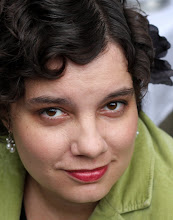From Brent's blog:
25 Recipes for Getting Started with R by Paul Teetor is a little book of
examples that solve particular problems using R. What's "R" you ask?
Well, then this isn't the book for you, despite its "Getting Started"
moniker. I knew that R was a hot new thing (program or programming
language or environment or something) that people were using to do neat
stuff with data and statistics. But I wanted to know more and this
seemed like a good book start with. I should have read the Preface a bit
more carefully as it clearly says:
This book is not a tutorial on R, although you will learn something by
studying the recipes. The book is not an introduction to statistics
either.
Those are both important caveats. While I know
slightly more
about R than I used to, I'm still looking to "get started" using R. The
problem here, to be fair to to Teetor, is probably the publisher's
(which it pains me to say since I love them so and I got this book for
free in order to review it). This book is a set of excerpts from a
larger book of recipes called the "R Cookbook."
That book
probably makes sense to buy if you've already gotten your start with R
and want some guidance on how to solve problems using R. The "25
Recipes" book is too short (only 44 pages of actual "recipes", the first
6 pages of which cover installing and getting help on the web) to
provide more than a very cursory overview. More troubling is that some
of the explanations within the recipes seem truncated. I'm guessing
that's because they refer to recipes in the full book that weren't
included here. For example, Problem 1.10 carefully explains that,
depending on how you select a column you might get a "vector" or a "data
frame" returned. While most people reading a book about R are probably
going to be able to intuit the distinction it still would have been
helpful to have thrown in a "recipe" about it. But of course, that
would be more of a "tutorial" which this book states that it is not. As
a positive, the book does cover the main things you'd want to know
(basic statistical function, basic plotting/graphing, regressions). But
it's hard to imagine that there aren't free alternatives on the web
that get you at least as far. In sum, I like the idea behind the book
but couldn't recommend this version. Perhaps the full "R Cookbook" is
the way to go.
Find the book here:
http://shop.oreilly.com/product/0636920018315.do


No comments:
Post a Comment